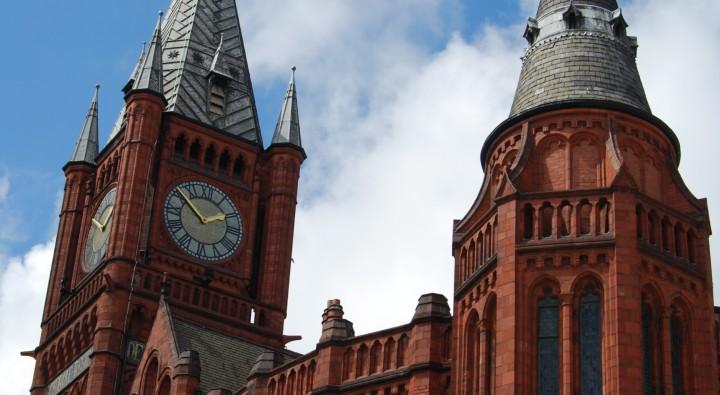University of Liverpool

Why we've signed the Manifesto
"The University of Liverpool was founded nearly 140 years ago with a civic duty to engage in the life of the city and a mission 'for advancement of learning and ennoblement of life’. We are a signatory of the NCCPE manifesto because of our ongoing commitment to this heritage and because we recognise that an engaged approach is not only important in delivering public benefit from our work, but moreover, it is essential for the creation of excellent research."
Professor Anthony Hollander, Pro-Vice-Chancellor for Research & Impact, University of Liverpool
Our approach to public engagement
The University of Liverpool views public engagement as an underpinning ethos – a way in which we go about our business – rather than an add-on activity. Effective relationships with people and organisations from a broad range of sectors and backgrounds enable us to extend our reach and enhance our impact. They also provide our students and staff with truly rewarding experiences and a whole range of distinctive opportunities to achieve research and teaching excellence.
In recent years we have made significant enhancements at the strategic level – with the agreement of a Strategy for Public Engagement with Research and a governance structure established to enable institution-wide coordination of activity and sharing of best practice. A number of significant new initiatives have made tangible impact at the grass-roots level, too. These include public engagement forum events, a University grant scheme for public engagement and a staff award specifically for public engagement.
We are proud of our varied, flourishing public engagement activities and look forward to continuing to build on these.
Our public engagement hallmark

Tate Liverpool
The University of Liverpool’s award-winning partnership with Tate Liverpool has enabled the development of the Tate Exchange programme.
Tate Exchange is an open experiment; a space for an ongoing programme of events developed by artists, practitioners, researchers and associates. It is a place where everyone is invited to collaborate, test ideas and discover new perspectives on life, through art.
In June 2018 the Tate Exchange Programme produced ‘Made from Light: The Art and Science of Renewable Energy’, which explored our relationship with energy, including:
- How the future of energy production and our environment will be shaped by not only science and technology, but also culture, beliefs and behaviours.
- How our engagement with art and literature shapes society, behaviours and imagination in relation to energy production and consumption.
- How the possibility of harnessing the power of the sun has inspired (and continues to inspire) scientists, engineers, writers and artists alike.
The exhibitions showcased research on energy from across the University of Liverpool, including staff from English, History, Architecture, Engineering, and the Stephenson Institute for Renewable Energy. Visitors responded with questions, comments and creative pieces, which themselves became part of the exhibition, encouraging further dialogue.
Our public engagement talking point
Visible investment in public engagement is important to underline the institutional commitment to the agenda. At Liverpool, we have created a public engagement grants scheme which incentivises academics who can apply for small amounts of funding to carry out public engagement activity. The scheme has proven popular and many of those who took forward their projects, either through funding under this scheme or funding gained elsewhere, reported that the provision of funds reduced the barrier to begin public engagement activities.
The creation of awards for public engagement as part of the University’s annual staff awards was a further important way to show the priority placed on this area of activity and is something we would recommend to others. The awards have enabled us to communicate public engagement success stories to a wider audience, whilst promoting and recognising the work of colleagues in this area.
Our public engagement people

Dr Louise Dennis, School of Electrical Engineering, Electronics and Computer Science
Louise has developed a science communication activity called ‘Lego Rovers’ that is now taken into schools and used to demonstrate concepts from across programming, robotics, and space science. From small beginnings, and with help from a public engagement grant secured by Louise, Lego Rovers now visits around 10 schools per year. Louise is often invited back to schools and teachers have commented positively on how the activity helps them deliver the National Computing Curriculum. She is currently negotiating with Manchester Science Festival to run Lego Rovers as a series of workshops throughout the festival to tie in with their headlining ‘Robots’ exhibition.
As well as her work on Lego Rovers, Louise has appeared several times in the media talking about her work in Robotics and Artificial Intelligence. She has given public lectures to several SciBars, appeared in a ‘Science meets Poetry’ event at the 2016 Manchester Science Festival, and has helped judge Lego Robot programming contests run by the Lego Company.
Contact
Bob Cooney rcooney@liverpool.ac.uk